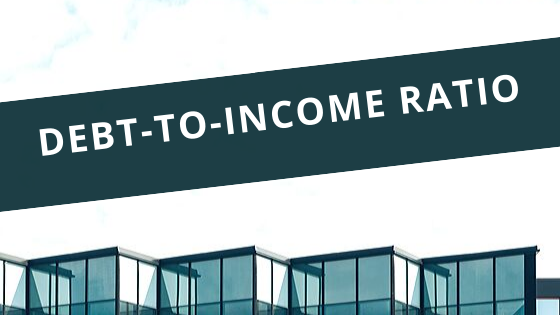|
Mortgage loans can become cause for confusion, anxiety, and stress. With lots of questions, terms, and factors coming into play, people often wonder how to tackle the issue of getting declined by the bank. As part of this series, we would like to shed light on how to avoid the chances of getting declined for a mortgage, and the proactive efforts you can make to avoid this from occurring. Just to quickly recap, we pinpointed 5 typical reasons a mortgage application is likely to be declined. These 5 areas seem to be the most common challenges facing many applicants: 1) Your Credit Rating & Report 2) Your Earnings and the Type of Income You Have 3) Ability to Meet the Industry Required Debt to Income Ratios & Stress Text Criteria 4) The Type of Property 5) Setting Expectations Incorrectly There may be other situations, however, the five noted above seem to encompass the majority of issues faced by potential borrowers. Let’s take a deeper look: 1) Your Credit Rating & Credit Report The very best advice I can give is simply “pay your bills”. It is so important to ensure that you make all credit payments on time. The reason is that sometimes we mis-calculate our timing and can easily overlook the payment due date. This missed payment will be noted in your credit report and will be a black mark on your record for up to 7 years. This will lower your credit score and present a strike against your credit worthiness – not something you want! Keep an eye on your payment due dates and try to pay well before the due date to ensure no issues arise. Additionally, you should try and pay your credit balances in full, when and if possible. This will also help improve your credit by improving your utilization ratio. If you make only the minimum payment and keep a credit balance outstanding, this can actually hurt your credit score in the long run. Keep your credit balances at or close to zero if you can - it is best to have a little debt as possible showing on your credit report. This shows the creditor that you are responsible and able to manage your obligations, and not an ultimate risk to them. If you cannot afford it, then don’t buy it. Ensure you have the cash to cover the credit purchase you make. Avoid trying to apply for many forms of credit and be careful as to the type of credit you are applying for. The number of times you apply for credit is recorded in your report and may reflect negatively on you, as you may be viewed as a desperate credit seeker. Stay away from certain creditors such as Payday Loans, because lenders may think that you cannot maintain finances and the responsibility of a loan. A damaged credit report is not easy to repair and takes a long time to do so, so ensure you protect and keep it up to date. 2) Your Earnings & Type of Income Lenders look very closely at income and the type of employment. If you are salaried, the income confirmation is relatively straight forward. But if you are a contract worker, paid by the hour with plenty of overtime or self-employed, the loan approval income confirmation will vary. Lenders look for consistent income and length of time at the job or in your particular career. Income is usually consistent with those on a salary, but this may not be the case for contract workers and those who are self-employed. If you are salaried, the basic income confirmation information required would be:
Lenders will use more scrutiny for those on contract or are self-employed. The reason is that self-employed income is not consistent nor guaranteed unlike a salary. They will require a track record from the applicant, usually a 2-3 year period, which will show a steady income pattern for the lender to rely on for the approval. The lender wants to ensure that commission or self-employed earnings are consistent year after year. The typical documents a commissioned or self-employed individual will have to supply to the lender are:
This is quite a compelling list, with no guarantee of approval from the lender. Ensure you are prepared for whatever income requirements fit your situation. Best advice is to speak with a mortgage professional and know your options and the requirements beforehand. This will save you time and potential let down. 3) Ability to Meet the Industry Required Debt to Income Ratios & Stress Text Criteria Servicing debt ratios are used by many institutional mortgage lenders, and they are a key indicator as to affordability of the loan for the customer. They will assess your income as highlighted above, and then offset it against proportional expenses to determine how much you can afford to borrow. The 2 main ratios used by institutional lenders are the Gross Debt Service Ratio (GDSR) & Total Debt Service Ratio (TDSR). In a nutshell, the two ratios represent the following: (GDSR) – The Gross Debt Service Ratio ensures that no more than 32% of your gross monthly household income is used to cover the following monthly expenses:
(TDSR) – The Total Debt Service Ratio ensures that no more than 40% of a gross household income can be used to cover the items noted with the GDSR, in addition to the following monthly credit obligations:
These two ratios will set the ceiling as to the maximum amount you can borrow, based on your income and overall monthly expenses. However, there are various lenders in the market, those who are more flexible, and their mortgage approval ratio percentages are higher. This may result in you qualifying for a higher mortgage loan amount, but the costs and interest rate may differ compared to those of a bank. The loan ratio calculations may seem confusing, and that is why you should contact a mortgage professional, so the process is explained and easier to understand. Above and beyond the ratios noted above, the Government of Canada has also implemented a financial stress test for mortgage loan approvals. “The so-called stress test is a financial bar that any Canadian looking to take out a mortgage must pass to be approved for one…. The idea is to save the borrowers from biting off more debt than they can chew and ensure they have financial wiggle room if rates rise.” A mortgage professional will help you maneuver through the ratio calculations and stress test requirement and streamline the mortgage approval process for you. 4) Type of Property The type of property being mortgaged will also impact the loan approval. Owner-occupied properties typically get the best mortgage rates and options associated with them. Lenders favour owner-occupied properties, because they tend to be less of a riskier situation for the lender. Homeowners typically have pride in home ownership, and so in most cases will maintain their financial responsibilities regarding their home. On the other hand, rental properties usually warrant higher interest rates in some situations and may have additional costs associated with the loan set-up. Being a revenue property, the loan amount you qualify for will also be impacted by the rental income and all fixed costs associated with the rental property. Far more scrutiny is applied by lenders towards rental properties, because the calculated risk is higher for them. Vacation or recreational properties also fall under a different category regarding the mortgage approval process. They are also subject to typically higher interest rates & costs in some cases, since they are not a primary residence and tend to be in rural areas. It is best to speak with a mortgage professional to know your options when considering the purchase of any type property. 5) Setting Expectations Incorrectly
Most of us want to embrace the unreal feeling of the “Pride of Homeownership”, yet we tend to forget the fact that the responsibilities can be tremendous. Owning a home and paying a mortgage is not the same as simply paying rent. It is far from it. The additional responsibilities of owning a property are many. In addition to your monthly mortgage payment, you can anticipate the following expenses:
It is best to have a game plan in place, prior to jumping right in and rushing to buy, refinance or take out equity of a property. Ensure you know what lies ahead and what options fit your situation. Contact a mortgage profession, who will coach and guide your through this process effectively. This will greatly improve your chances of getting your mortgage approved and avoid being let down and discouraged. If you need any help, advise or guidance regarding the mortgage approval process on all levels, Contact Us or give us a call. We are here for you to answer any questions, and assist in any way. Why are so many mortgage applications declined by the Big Banks? Getting a mortgage can be hard enough on your nerves, especially with the number of loan options to consider, but getting approved can be even more stressful. Many have the desire to become a homeowner and to feel the “pride of homeownership,” when purchasing a home or property. There are others who already own a home or property, are in the need of reevaluating their current finances, and would like to use their property as security to get the financial help they need. Or - perhaps you own a property with another person and would like to access your equity, and not involve the party. This is referred to a partial interest mortgage and this type of financing can be very complex, but attainable with a few select lenders. All of this sounds straight forward, but getting that mortgage approval through your bank/lender is not easy. In fact, getting your mortgage approved can be extremely time consuming, expensive and still turn out to be a simple turndown. National mortgage loan turndowns have been on the rise the past 2-3 years as a result of a slowing housing market, the introduction and constant amendment of mortgage regulations, and interest rate movements. These market conditions have made it very difficult for potential homebuyers and current homeowners to obtain mortgage financing. Are you bank declined? Here are some of the most common reasons mortgage loan applications are turned down: 1. Your Credit History This is one of the most important determining factors the bank will review when considering your mortgage approval. Your credit report reveals to them your credit account details and payment history, which offers them an over-all snapshot of your credit worthiness. Your credit report will also record a credit score, which offers an overall rating of your credit stability. Lenders can see as far back as 6 years + when looking at your credit report. All missed credit payments, bankruptcies, consumer proposals written-off credit accounts are noted within this time period and will impact your efforts negatively when applying for a mortgage. These derogatory items will lower your credit score and serve to be a deterrent for the mortgage approval. However, making your credit payments on time and paying down your outstanding credit balances will have the opposite effect and improve your credit score and chances for approval. Always keep your credit current by making your payments on time and try not to carry any outstanding credit balances. Private mortgage lenders do not focus closely on your credit when approving your mortgage. They offer far more flexibility, options and look very loosely at your credit report. 2. Your Income: Your income is almost as important as your credit when it comes to a mortgage approval, as the two are tied closely together. If you have gainful employment, you can more than likely manage to pay your bills and credit balances each month without hesitation. This will in turn give you and help maintain a good credit rating. Your income will also determine whether you can afford a mortgage payment, and how much you can pay each month. It’s simple - if you make very little income, the chances of qualifying for a mortgage are pretty remote and vice versa. How long on the job or time in your particular field of work will also be considered along with your income. In addition, income on all levels will require proof. So, it will not be uncommon to be asked for the following forms of proof of income and employment:
Private mortgage lenders require far less income verification with their loan approvals. They tend to offer a make sense approach for their mortgage loan approval requirements. 3. Debt to Income Ratio: Banks will use certain ratios to determine the affordability of a mortgage for a customer. Your income and current overall outstanding debt figures are used in calculating how much mortgage you can afford. This process can seem complex, so having a mortgage professional guide you through this is important. Banks generally only allow 40% of your gross house income to offset the following monthly expenses:
In other words, 40% of your gross income (before tax income) must cover and not exceed the expenses noted above. That is one long list of expenses, and you will be required to prove that your income will qualify. Private mortgage lenders often do not apply any ratios for the mortgage approval process. Private mortgage lenders are usually only interested in the amount of equity they may be potentially lending on. 4. Property Type:
The type of property and location will also greatly affect the loan approval. For example, a rental property is treated differently than an owner-occupied property. Most lenders will favour an owner-occupied property over rental property because they feel an owner-occupied property is cared for more so than a rental property. This seems to be an industry standard way of thinking by many lenders. Condos & townhouses, being strata properties, have their own distinctions, expenses, regulations and therefore qualify differently. Commercial properties also qualify differently as do the recreational properties which some own as a second home. The amount of money you can borrow, interest rate and legal/loan expenses will vary depending on the property type and the location. Consult with a mortgage professional to know your options and the various mortgage solutions available to you. 5. Your Expectations: Setting your expectations is key to getting approved for a mortgage loan. Many believe they can handle home ownership, and a mortgage payment would be no problem because they pay rent now. If only that were true. Yes, you would have the mortgage payment, but along with home ownership comes the added expenses of property taxes, heating expenses, strata fees, home repairs, and more each month. This list is long and distinguished and can eat up your available monthly funds very quickly. Home ownership responsibility can be tremendous and very expensive, but isn’t impossible to manage. Getting advice from a mortgage professional will help you realize what is affordable and will work within your budget, plus have the potential of being approved by a lender. A mortgage broker will assist you with getting this mortgage “pre-approved” and let you know your options. A mortgage broker will take into account the income you earn, the current financial situation you are in, the amount of loan required, the property type and help guide you through the process to ensure you get approved. A veteran mortgage broker will help prepare your application as attractively as possible, and help you get the loan you want. Just remember to be realistic with your expectations. Bank declined and wondering what to do next? Get in touch with us at Silver Hill Mortgage Corp. to explore your options and greatly increase your chances of getting approved for your mortgage loan request. We will assess your situation with the details you provide such as income, assets and expenses, and counsel you on your personal credit and the required loan ratios - all which will impact your approval. We will explain the various options available in an attempt to tailor the mortgage loan to your expectations. Finally, we will organize the documents you will need for the loan and proceed to submit to the lender for approval. To learn more, check out our FAQ or Contact Us. |
Silver Hill BlogJim Horvath is the principal broker and director of Silver Hill Mortgage Corp., arranging private mortgage loans in British Columbia for over 25 years. Archives
May 2024
Categories |
|
Silver Hill Mortgage Corp. Head Office
2902 West Broadway | Suite #302 Vancouver, BC, Canada V6K 2G8 E: info@yourequityloan.ca P: 604.620.2697 F: 855.299.5832 (Toll Free) |
Stay in Touch |
About UsSilver Hill Mortgage Corp. is a trusted industry leader in delivering home equity loans and other private mortgage financing solutions for homeowners and bank declined customers in British Columbia. Get in touch to get approved today.
Copyright © 2024 Silver Hill Mortgage Corp. All rights reserved. |
Proudly serving our BC communities:
Vancouver Private Mortgage | Surrey Private Mortgage | Burnaby Private Mortgage | Richmond Private Mortgage | Abbotsford Private Mortgage | Kelowna Private Mortgage | Nanaimo Private Mortgage | Victoria Private Mortgage | White Rock Private Mortgage | Coquitlam Private Mortgage | Langley Private Mortgage
Vancouver Private Mortgage | Surrey Private Mortgage | Burnaby Private Mortgage | Richmond Private Mortgage | Abbotsford Private Mortgage | Kelowna Private Mortgage | Nanaimo Private Mortgage | Victoria Private Mortgage | White Rock Private Mortgage | Coquitlam Private Mortgage | Langley Private Mortgage










 RSS Feed
RSS Feed
